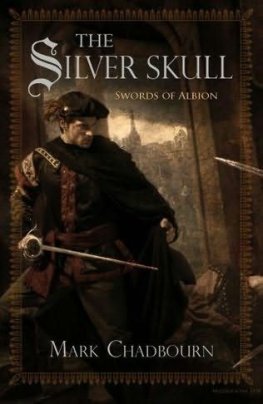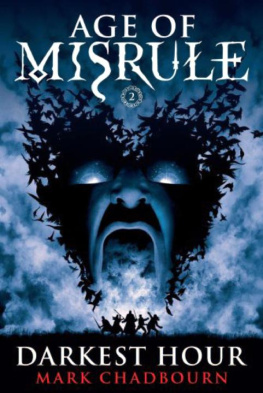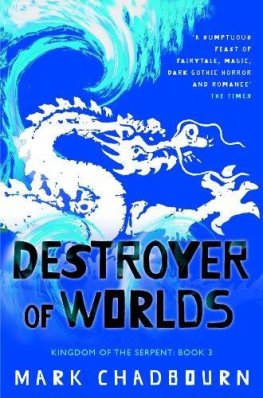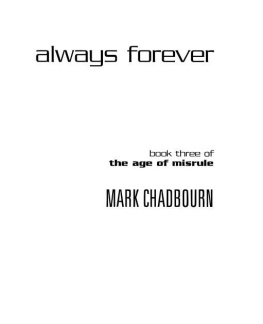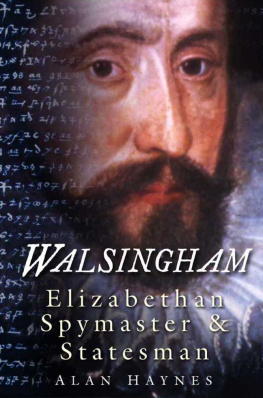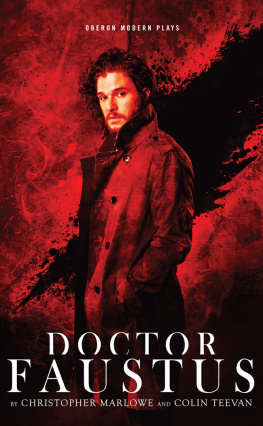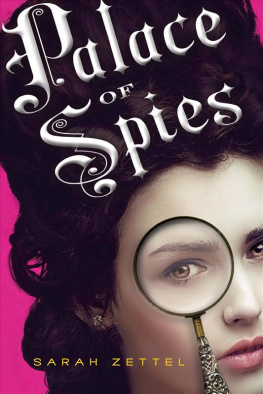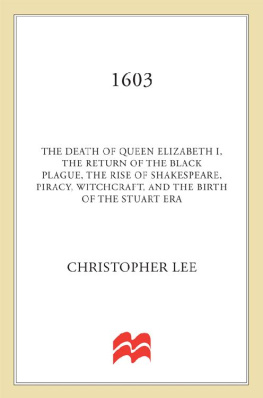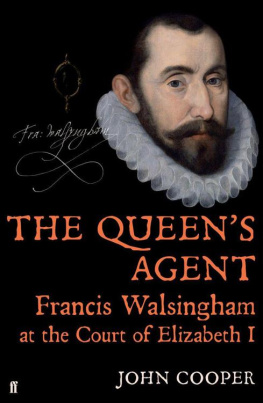ABOUT THE BOOK
1593. Queen Elizabeths trusted spymaster Walsingham has been dead for two years.
And as plague sweeps through the streets and stews of London, so suspicion and mistrust sweep through the court and government. No one feels safe. Even the celebrated swordsman, adventurer and philanderer, Will Swyfte, is not immune and must watch his back.
It is when his best friend and colleague, the playwright Christopher Marlowe, is killed in a pub brawl that Will decides he must act. The murder has all the hallmarks of an assassination. But in going in search of Kits killer, he discovers that there are those in positions of power and influence who are not what they seem...
Against a backcloth of growing paranoia and terror, Will detects the malign machinations of Englands hidden enemy, the Unseelie Court. Now friendless and with these devils at his back, the countrys greatest spy may find that even his vaunted skills are no match for the supernatural powers arrayed against him. The choice is simple: uncover the true nature and intention of this vile conspiracy or face the executioners axe...
THE
SCAR-CROW
MEN
MARK CHADBOURN


For Elizabeth, Betsy, Joe and Eve
PROLOGUE
PAST THE CANDLEWICK STREET PLAGUE PIT THEY RACE, BY THE RED crosses blooming on doors like spring poppies, and the words God have mercy daubed on house after house. Breath burning in their chests, they stumble and fall in the night-dark alleys only to haul themselves up on shaking legs to run again.
They are not consumed by terror of the sickness that has left London sweating in a feverish vision of its own demise, with florid images of blackened skin and blood haunting every thought. It is fear of what lies at their backs, sweeping through the filthy streets, caught in the glow of candles, like moths, eyes blazing with fierce passions. The ones who have footsteps like whispers, whose passing is a cold breath on the back of the neck.
Do not look behind. Do not slow, Christopher Marlowe yells to his companion.
His desperation rings off the wattle walls that press in on either side. In the heat of the late spring night, dark patches of sweat stain his grey doublet. His short Dutch cloak has been torn by a nail and his flat-top hat lost several streets back.
Marlowe is a playwright, one of the most famous in England, but he has other work, secret, dirty and dangerous. In intermittent shafts of moonlight, Marlowes face appears too pale, his features etched with a profound sadness that is surprising in a man still in his twenties. His eyes are dark against his almost translucent skin, the clipped black beard and moustache as wispy as the first face hair of a boy.
Beside him, Jack Wainwright is like a Kentish oak. Though almost ten years older than his companion, with a beard streaked with grey, he could easily shoulder a full beer barrel at the Mermaid Tavern on Cheapside. The whites of his eyes show clearly beneath his heavy brows. Scared, he ignores Marlowes order and glances back.
Lights dance in the dark, drawing closer.
We could hide and take them by surprise, Wainwright says with a wavering voice that contains no enthusiasm. Under his working clothes, a loose coat over a shirt belted with cord, his sweat is cold.
Would you take that risk? You are strong, but you are not a fighting man. And I, God help me, can do damage only with a quill, Marlowe gasps. At the crossroads, he pauses, tries to steady his pounding heart, takes his bearings and then moves on.
Careering into the middle of a street near ankle-deep in dung, the two men skid to a halt a hands-breadth from stamping hooves and creaking wheels. Eyeing them from beneath the brim of his battered hat, the driver spits an oath through the filthy cloth tied tightly across his mouth. He cracks his whip and urges the lumbering horse on. It is the death-cart. In the back, the wrapped bodies are stacked like cordwood, leaking fluids on to the roadway with every jerk and rattle. For a moment, Marlowe and Wainwright stare after the wagon as it disappears into the night.
With a rough shove, the older man urges his companion on. We shall not outrun them.
No. It is too late for us now, the playwright mutters under his breath. Perhaps it was always too late.
The route between the filthy hovels is as black as pitch, but Kit has run it many times to avoid the constables and beadles, the drunken cutpurses and the low men to whom he owes money. Continuing west, they pass the open shutter of a cellar crammed to bursting with the poor, huddled in the dark in the reek of their own sweat. Pale faces glance up from the gloom, eyes wide with hopelessness.
Marlowe picks a path through a maze of stables and stores until he sees the spire of St Pauls silhouetted against the night sky. The cathedral would be open for sinners to find sanctuary. He urges Wainwright on.
We can bolt the door, he says, clapping a hand on his fellows shoulder. Pile the pews against it. Although he knows it will do little good.
The fugitives tumble into the candlelit cathedral and slam the heavy door behind them. The echoes rumble like thunder through the cavernous interior of the grand old building. Their breath ragged, they inhale the ghost of incense. With trembling fingers, they draw the bolts lightning-fast, a moment before something crashes against the oak with the force of a carriage. The two men are hurled across the worn flagstones, the impact knocking the wind out of them. Whatever is outside continues to pound the door with a steady, deafening rhythm.
Thoom. Thoom. Thoom. A funeral drum.
The blood hammers so loud in his head, Marlowe can barely think, but after a moment he gathers himself. Quick! Help me! he calls. Wiping the moisture from his brow, he scrambles to his feet and runs to the nearest pew. It is too heavy for him to lift alone, but Wainwright grasps his end and raises it effortlessly. The two men haul it across the door, and then return for two more.
Twill not delay them long, Wainwright shouts above the booming echoes. His face is red, his sweat vinegar-sharp in the air.
It will buy us a moment or two. That is all I need. Fighting back his queasy dread, Marlowe, followed by Wainwright, runs down the naves great length. The locals call it Pauls Walk and it is nearly six hundred feet long, making the cathedral the third-longest in Europe, so the clergy boast. Past the scars of the destruction inflicted by Old Henrys dissolution and the Chantries Acts they race, under the vaulted roof and past the triforium which gives the cathedral a grandeur that makes Kit wish he was a Christian with a God who would listen to his pleas. He fixes his attention on the stained glass of the great rose window at the east end, hoping to see a glimmer of dawn, although he knows in his heart there is still a good half-hour to go.
In the sanctified interior, Jack Wainwright has calmed a little, though he winces at every crash against the door. What were they doing in that house? Did we really see that ... that terrible thing? he asks, kneading his hands. Marlowe knows his companion hopes for a denial. When none comes, Wainwright crosses himself and blinks away tears of dread.
Put it out of your mind. We have little time left to us. Spend it on whatever pleasant thoughts you can summon. Distracted, Marlowe continues to search along the nave.
Pleasant thoughts! Wainwright exclaims, lifting his hat to run his fingers through sweat-plastered hair.
Next page

